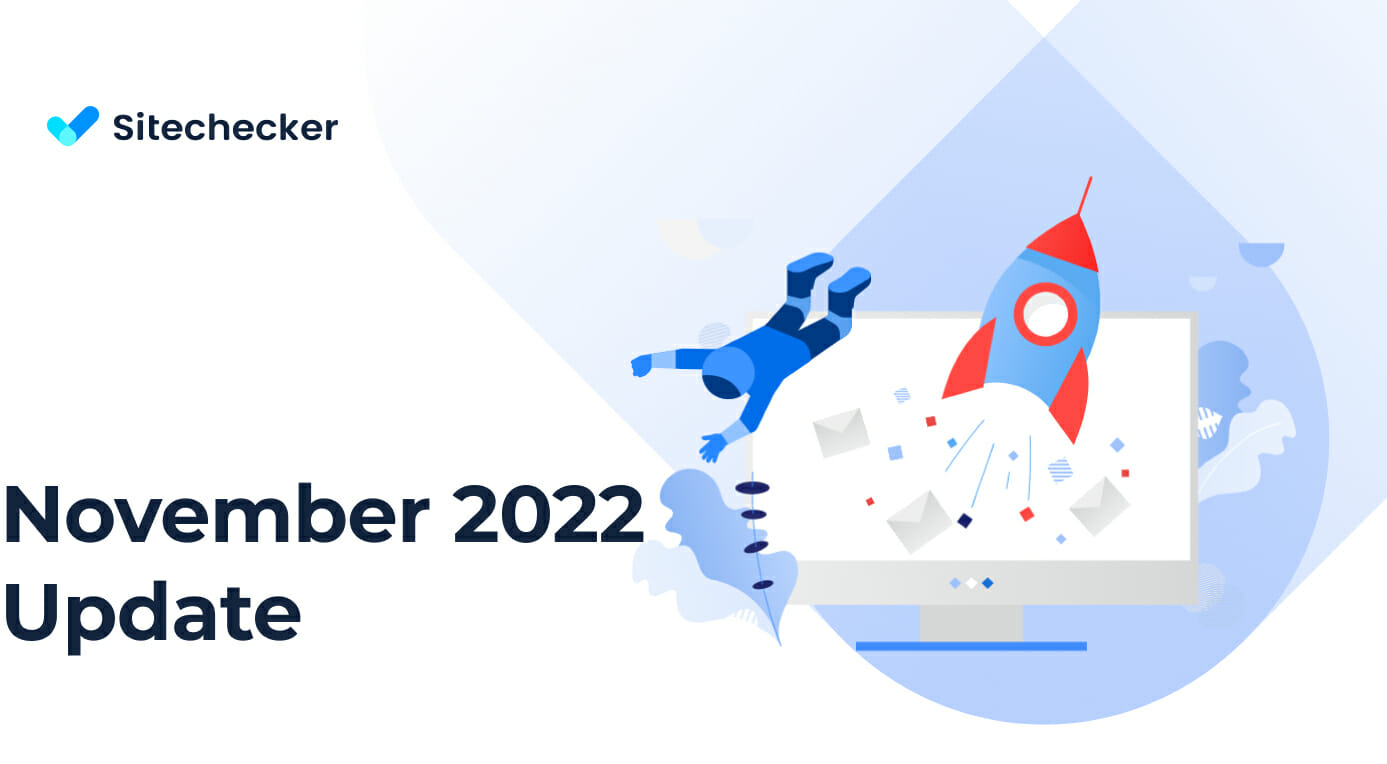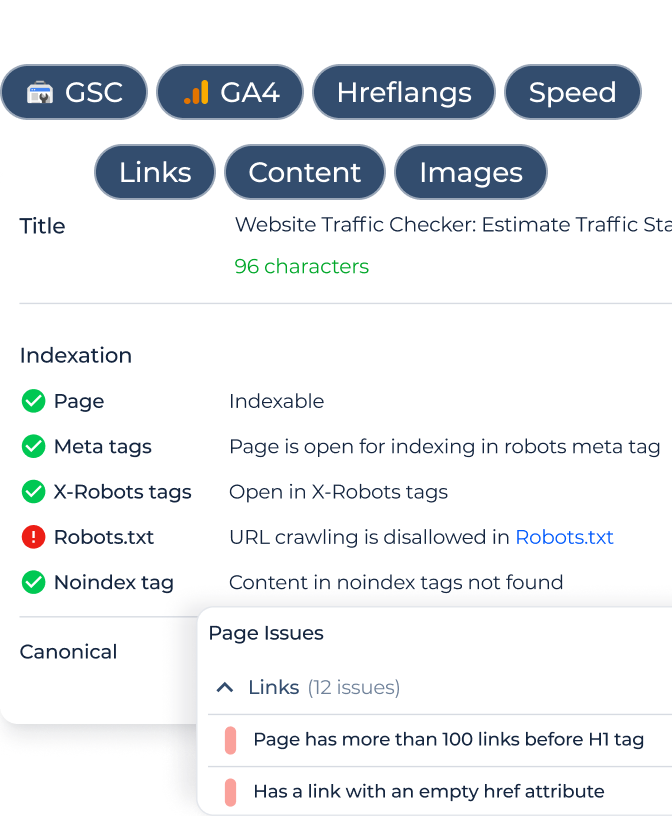The most important product updates for September 2024.
1. Keyword Research Tool
We are happy to introduce a big update of Keyword Research tool in Sitechecker, which made keyword discovery and management more efficient. This was the most requested feature by our customers. Now you can get vital keyword insights all in just one place.
Data export to CSV or Google Sheets is also available, which makes it super easy to report and analyse.
Search Suggestions
The Search Suggestions feature generates fresh keyword ideas based on Google Autocomplete API.
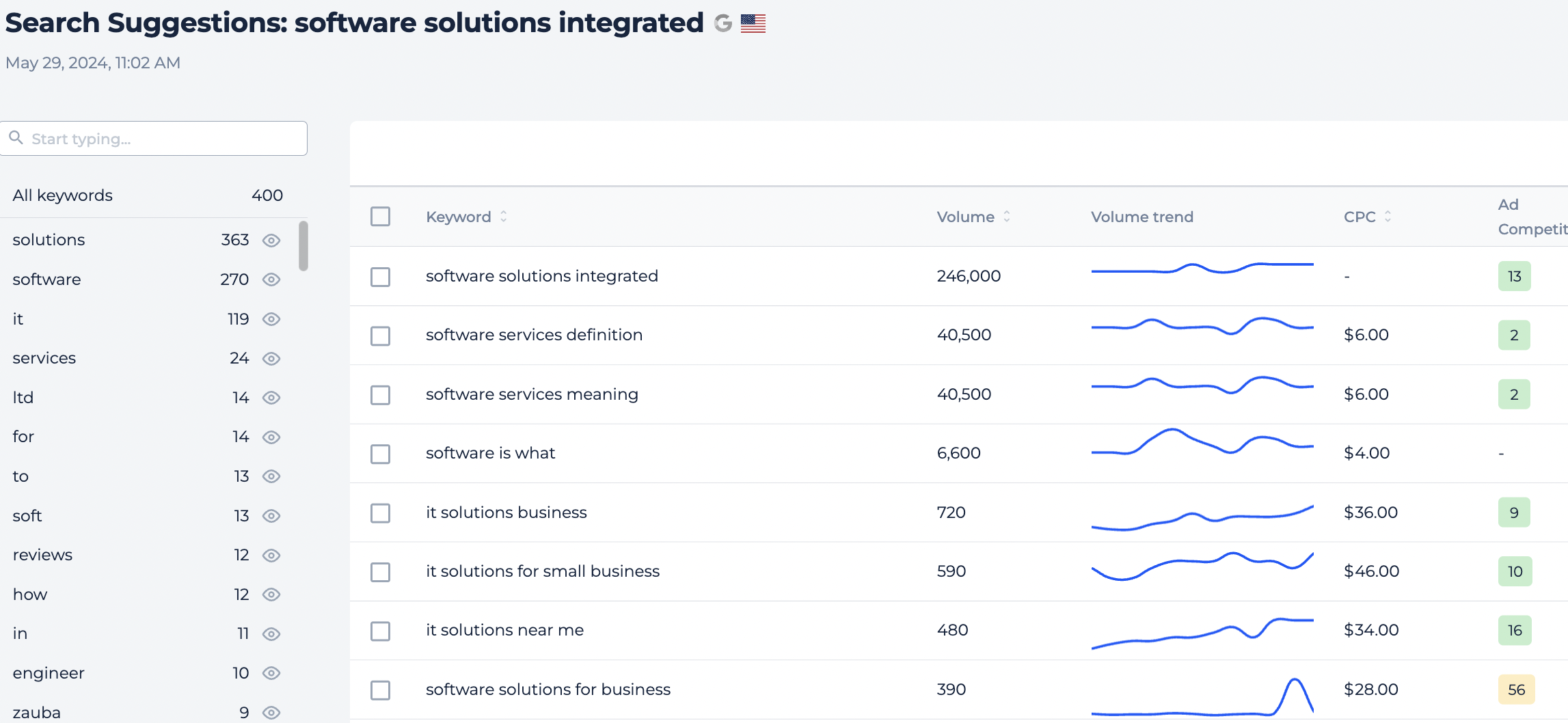
Competitor Analysis
Now you can analyze how your competitors are ranking for specific keywords. This tab allows you to scan your competitor and see for which keywords the website ranks in a specific country and language.
It will bring you a deeper understanding of your competition’s keyword performance.
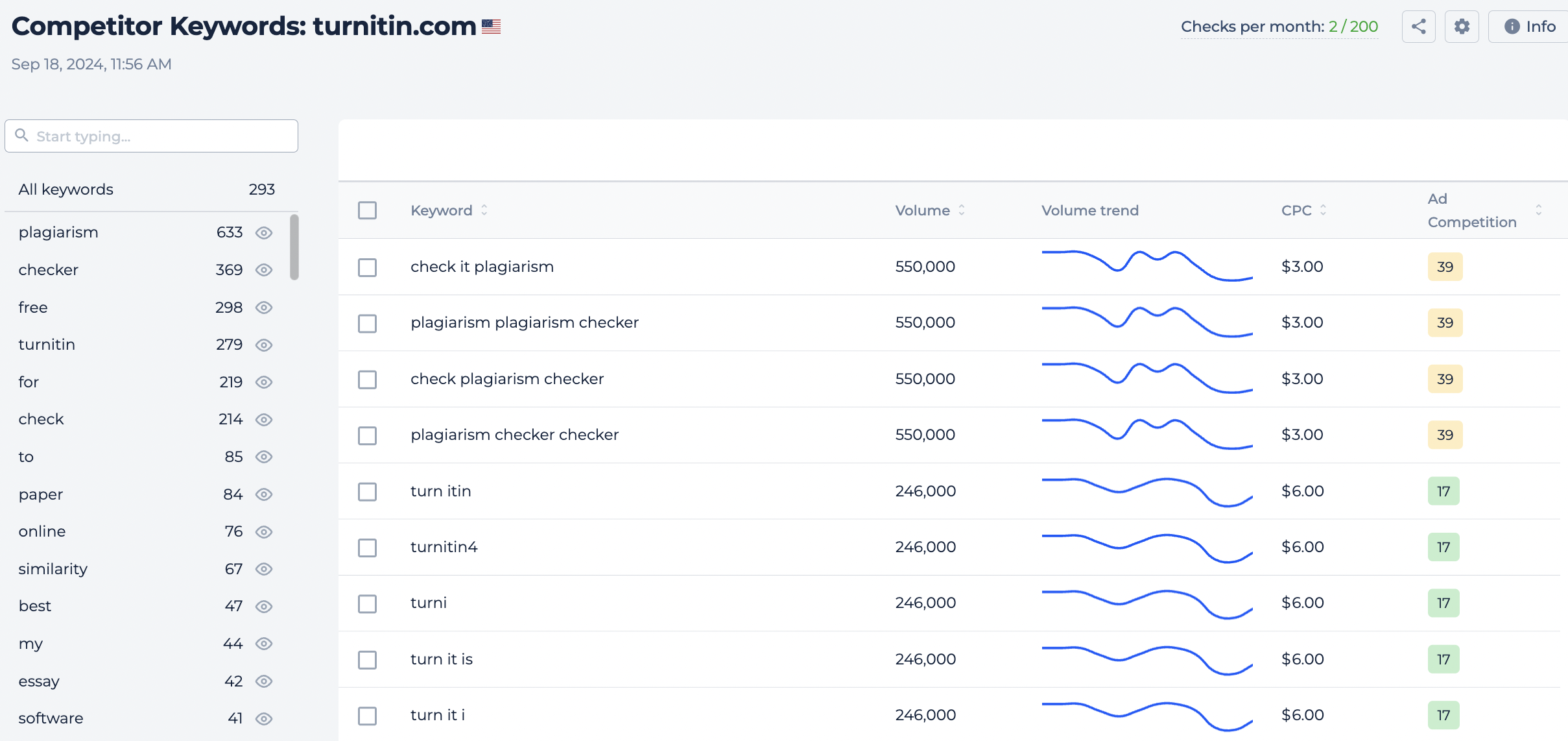
Google Search Keywords
Google often can rank you for many relevant keywords for which you don’t have separate pages yet. And creating such pages usually is the fastest way to increase your organic search traffic.
The tool selects the 2000 most valuable keywords from Search Console over the last 3 months , providing up-to-date keyword performance insights. Depending on your subscription plan, you can track up to 2,000 keywords on Basic, 5,000 on Standard, and 10,000 on Premium.
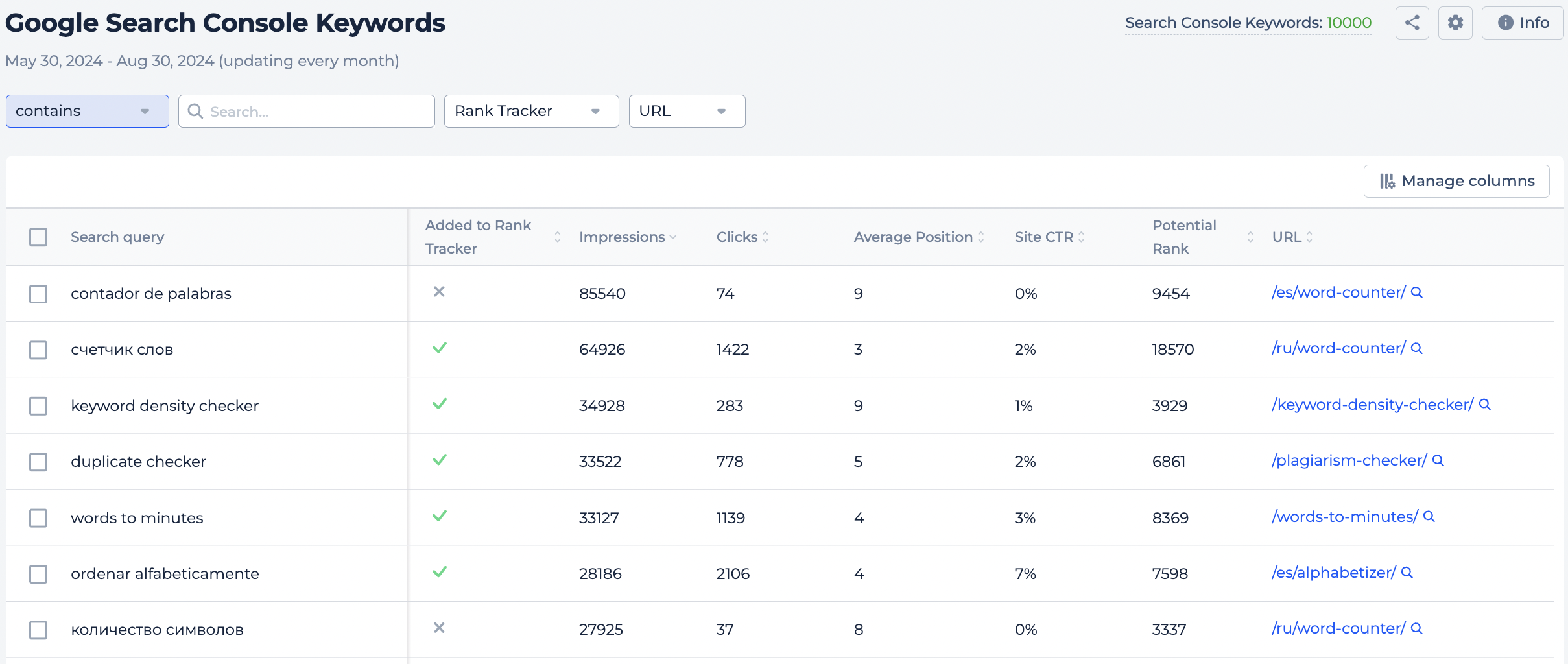
If the keywords are not added to Rank Tracker yet, we will show you this, so you do not miss a chance.
2. Share only specific tools
We’re introducing a new feature that allows agencies to control which tools clients can access when sharing a project. This update allows you to limit access to specific tools, like Site Audit, that some clients may find overwhelming.
When inviting users to view a project, you can now select which tools they can access. This can be done through a new “Tools” field in the invitation popup.
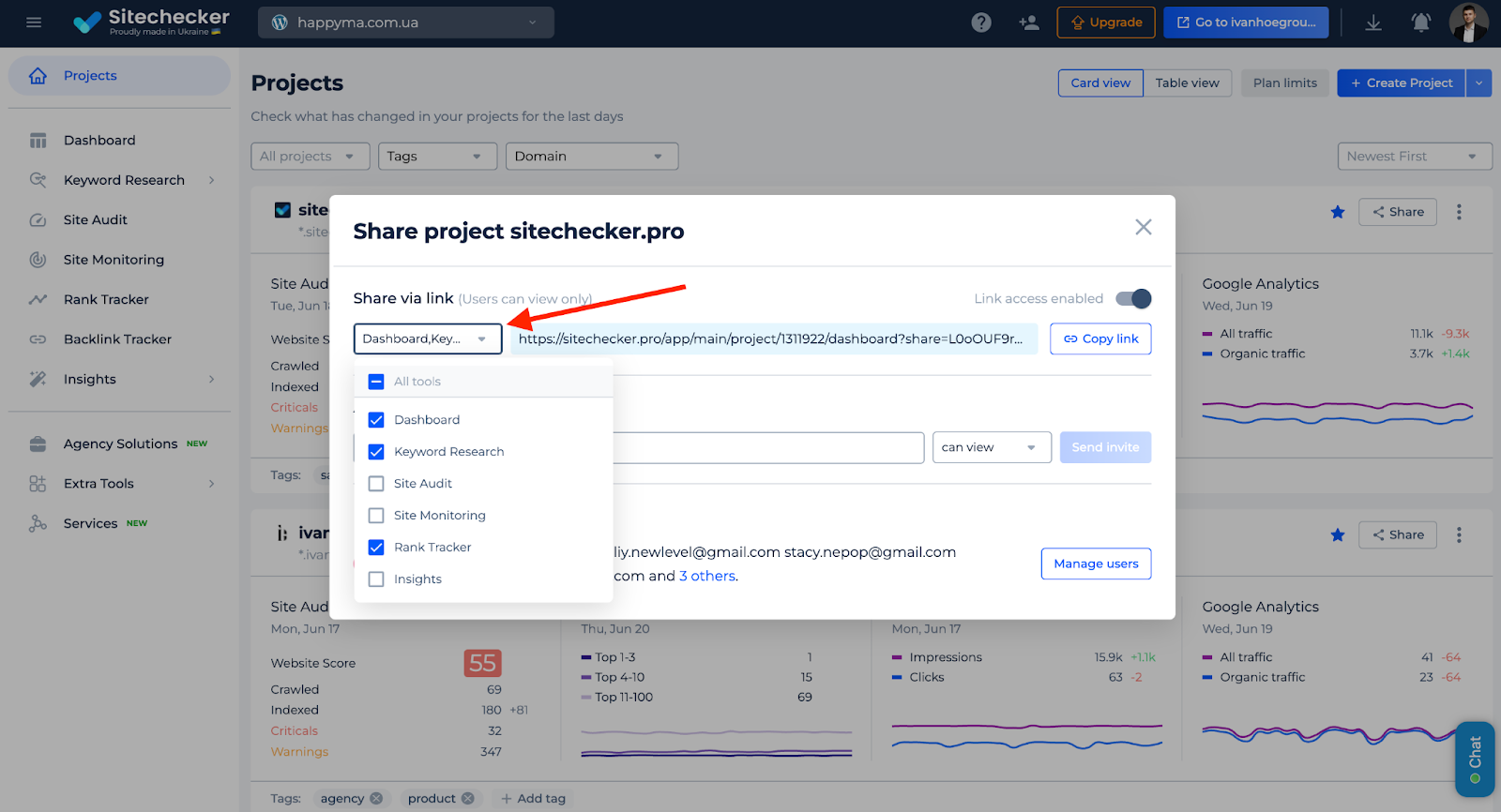
Additionally, you can manage tool access for each user in the project’s settings, where restricted tools will be removed from their sidebar view.
This functionality also applies when sharing projects via a link, ensuring you have full control over what your clients can see.
3. Project list cards update
GA4 and GSC aren’t designed for companies managing multiple websites, like agencies, international brands, affiliate teams, or holding companies. In both tools, you only get dashboards for individual projects, not a unified view for all your websites.
That’s why we’ve added more project card types at Sitechecker, making it easier to monitor key metrics across multiple sites.
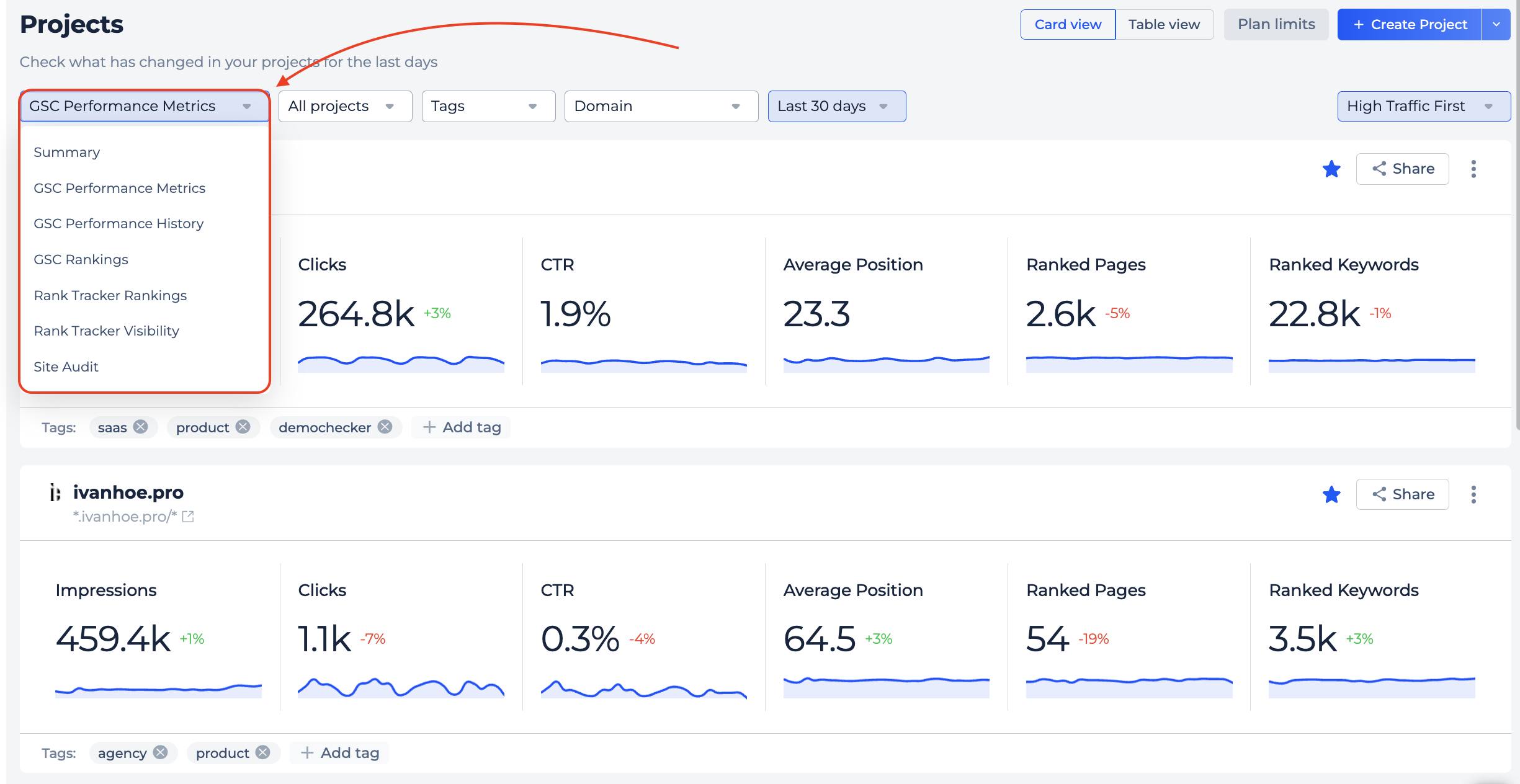
Now, you can track main search performance metrics from Search Console, along with additional metrics like Ranked Pages and Keywords.
You’ll also be able to monitor keyword clusters (Top 1, Top 2-3, Top 4-10, etc.), see the visibility trend from Rank Tracker data, and check Site Audit issues, crawled, and indexed pages.
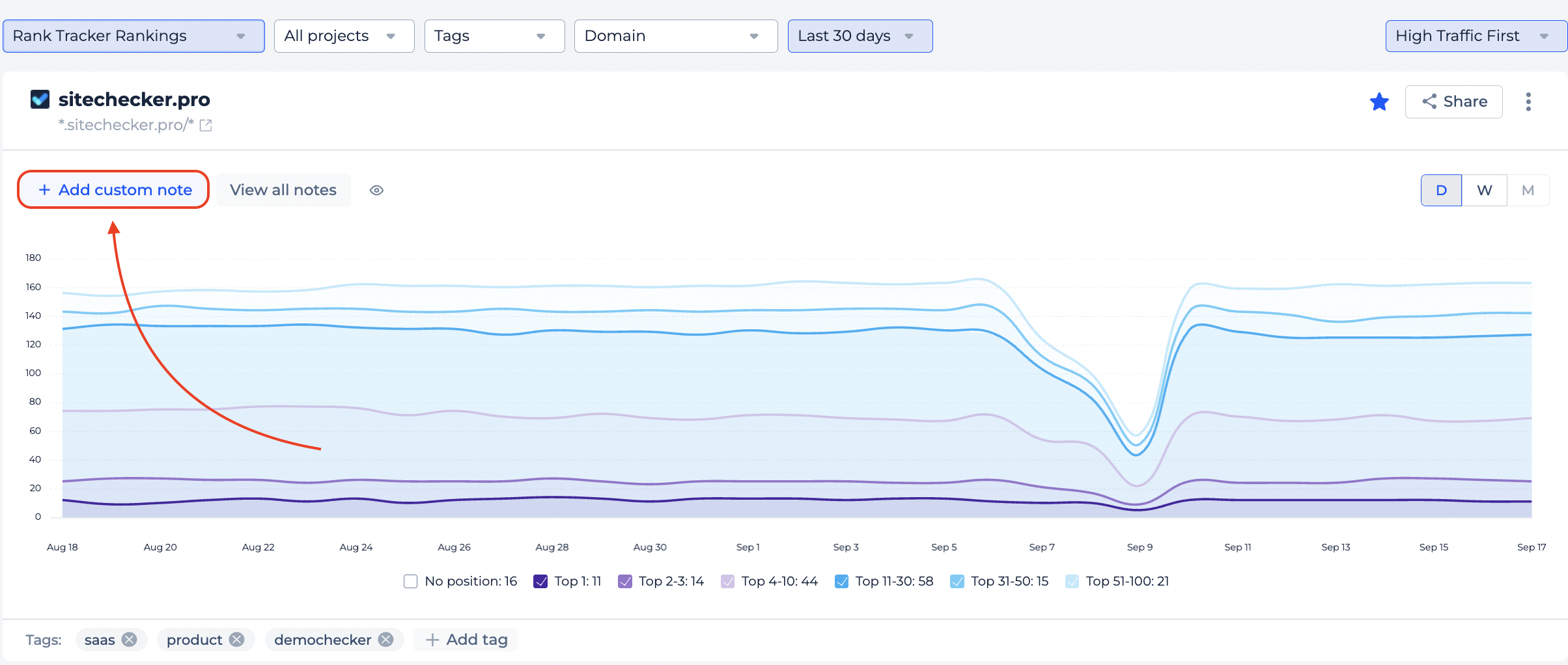
Plus, you can add custom notes about any significant changes made to your websites.
If you’re interested in more card types, feel free to suggest them via our public roadmap!
4. Rank Tracker updates
PDF reports
We’ve improved the Rank Tracker PDF reports in Sitechecker to offer more flexible and detailed insights.
The reports now include key graphs with daily data points, trends in rankings, visibility percentage, and competitor performance.
In addition, keyword data such as search volume, position, and CPC will be displayed, along with changes over 7 and 30 days.
These updates make it easier to analyze and share SEO performance insights.
Dashboard widget
In the Rank Tracker widget on the project dashboard, the Indexed Pages tab is now replaced with a Competitors tab. If competitors are added, a competitor visibility graph will appear, with options for adding custom notes, viewing notes, and selecting data like Visibility and Top positions from a dropdown.
On hover, the graph will show data according to the selected dropdown metric, such as competitor visibility.
Project list widget
We are updating the default project card view on the Projects List to improve usability and insights.
The Site Monitoring block was removed from the project card, and the Rank Tracker block will now display dynamic graphs instead of static position values.
These graphs will show data for the last 28 available days, similar to how it’s done in GSC/GA charts. The delta (+/-) near the position names will still compare with the previous day’s data.
5. Custom white-labeled emails
We’ve enrolled a new White Label feature that allows you to customize the sender name and email address for all communications sent from Sitechecker.
This gives you full control over the branding of emails, so they come directly from your own domain and address.
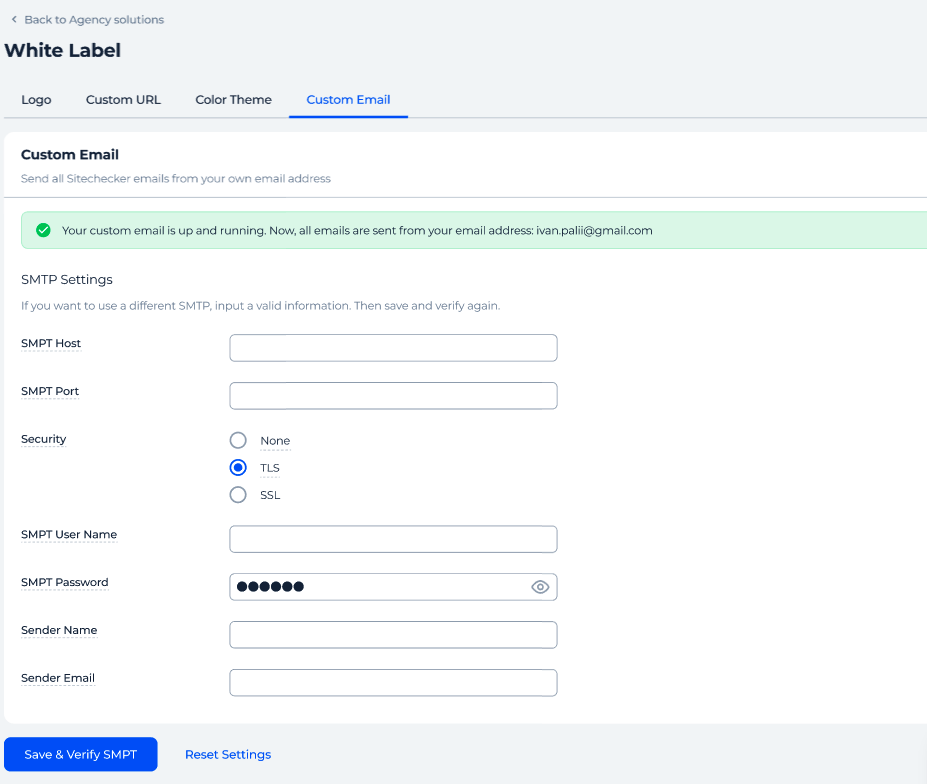
This update boosts the flexibility and branding control for users who use the White Label feature.
6. Website migration checker tool
We’ve launched a unique Website Migration Checker tool which solves one of the biggest challenges of site migration.
Previously, you had to perform two separate audits for the old and new sites, then manually search for inconsistencies between the reports. This was a time-consuming and frustrating process.
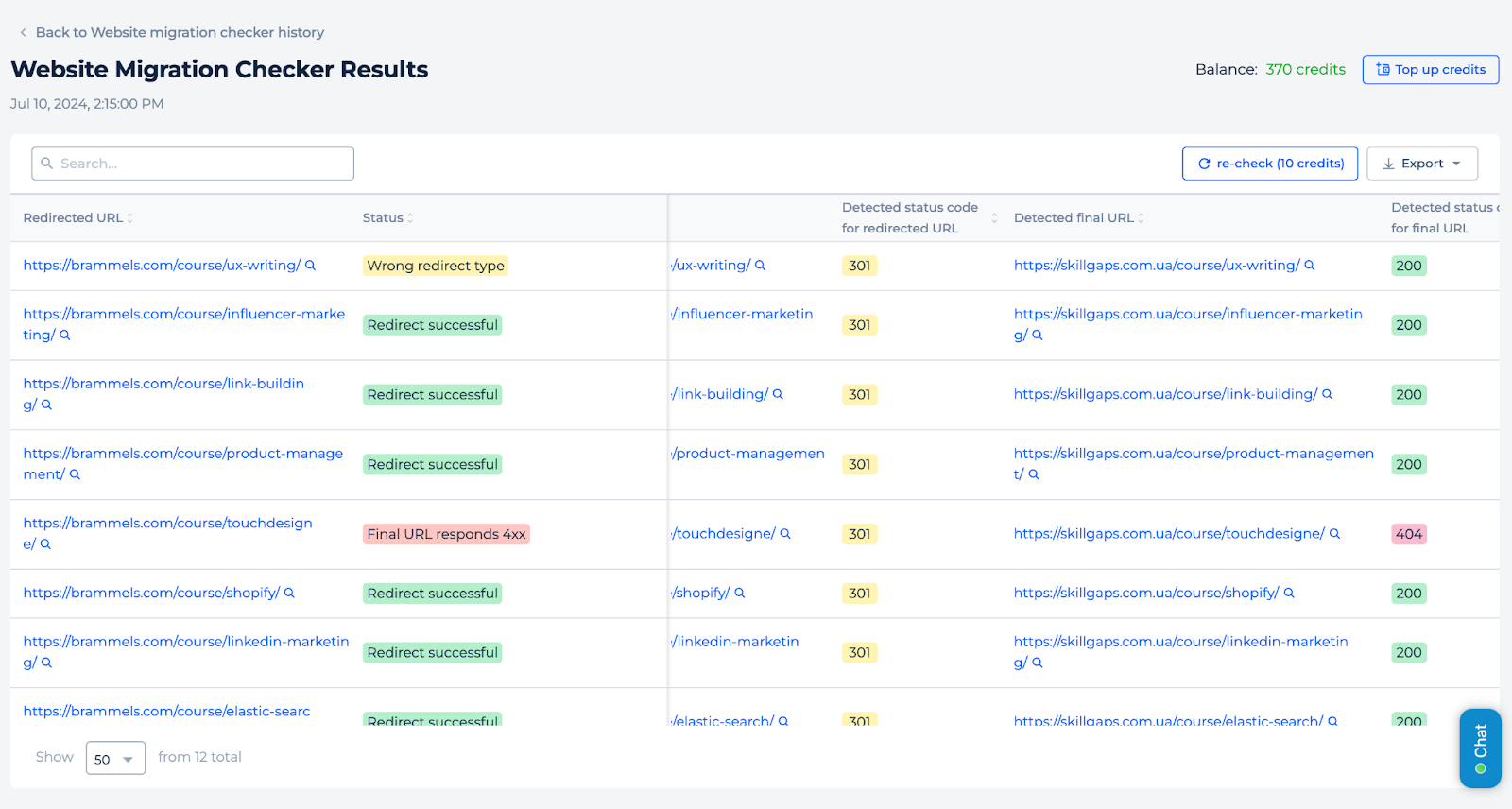
For each planned redirect, you’ll receive one of the following statuses:
- Success: Redirect successful.
- Warnings: Redirected URL responds 2xx or wrong redirect type.
- Critical errors: Redirected URL responds 4xx/5xx, wrong final URL, or final URL responds 4xx/5xx.
This extra tool allows you to check up to 10,000 pages per report for just 50 credits ($5).
7. Sitechecker Chrome extension design update
The Sitechecker’s Chrome extension is a free tool for instant on-page SEO checks, and it’s already trusted by over 173,000 users. You can easily analyze both your website’s landing pages and those of your competitors.
Recently, we’ve made two important updates to the extension: we made changes to the backend to make it faster and refreshed the design to improve report readability.
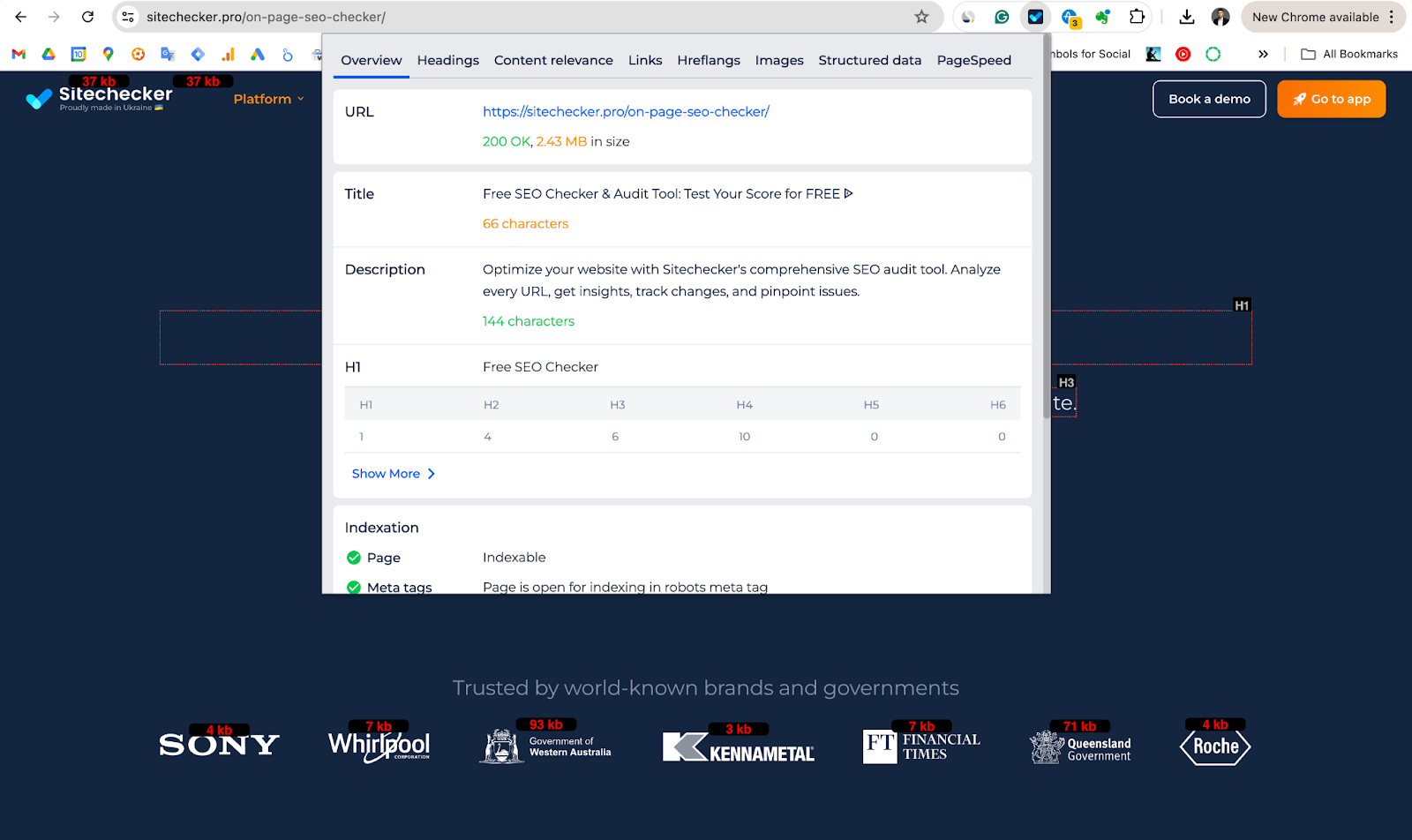
Here are some of the most popular ways users are benefiting from the extension:
- Checking landing pages for indexation issues after publication.
- Reviewing the heading structure of competitor landing pages.
- Verifying if donor pages have backlinks to your website.
- Identifying if a website has subdomains.
- Finding broken links on a landing page.
And best of all, it’s completely free!





